Prabowo’s rocky road to the Indonesian presidency is a tale of redemption
Indonesia’s new president finally has learned how to play political rivals at their own game, but can he navigate great-power tensions and carry out his ambition to boost his country’s economic growth?
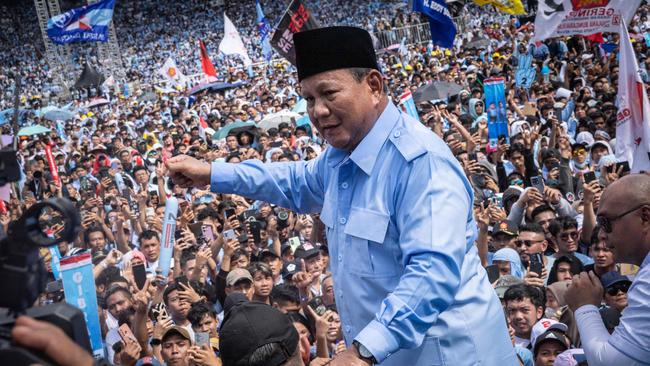
Drive along any major road in Jakarta this week and it is hard to miss the embarrassment of uniform banners feting Joko Widodo ahead of the weekend inauguration of his anointed successor, Prabowo Subianto. Jokowi, as the outgoing president is widely known, leaves office with a popularity rating most leaders can only dream of, even if that has required a bit of buttressing on his way out.
After his decade in office his legacy is an impressive network of new roads, airports and bridges, a new capital city in the Borneo jungle, a universal health system that has provided millions of people with access to medical services, and the succesful suppression of Islamic extremism.
Yet some sheen has come off the so-called infrastructure president thanks to his determination to build a political dynasty. Recent missteps by the beneficiaries of those efforts haven’t helped.
Youngest son Kaesang copped harsh blowback for taking his wife on a private jet to the US as public outrage erupted at home over parliament’s attempt to subvert a court ruling blocking his electoral path to Jakarta governor. It was Prabowo who finally put a halt to it.
Meanwhile elder son Gibran Rakabuming Raka – the next Indonesian vice-president – was recently linked to a social media account that regularly panned Prabowo during previous election campaigns. Who leaked those details and why is now the subject of ferocious rumour, including speculation it could be used to sideline Gibran.
The scandals are clearly of their own making, but that hasn’t stopped the conspiracy-minded from seeing the hand of a shadow puppet master at work, one who cannily rode the coat-tails of Jokowi’s popularity all the way to the presidential palace.
Certainly many Indonesians, exhausted by Jokowi’s self-serving political machinations, say they are looking forward to new leadership – even if it is Prabowo.
Political metamorphosis
It has taken the erstwhile pariah several decades and five elections to get there, but the 73-year-old has finally learned how to play his political rivals at their own game.
The former Special Forces commander enters office on Sunday with more political goodwill than his detractors could ever have thought possible.
That is not to say Prabowo has wiped his slate clean. Allegations of human rights abuses in East Timor and student activist kidnappings in Indonesia – which he denies – have dogged him since his 1998 dismissal from the military, following the fall of his father-in-law Suharto’s regime.
But an election campaign bolstered by Jokowi’s support, his choice of running mate and his own apparent metamorphosis into a wiser, mellower figure has helped polish a tarnished reputation.
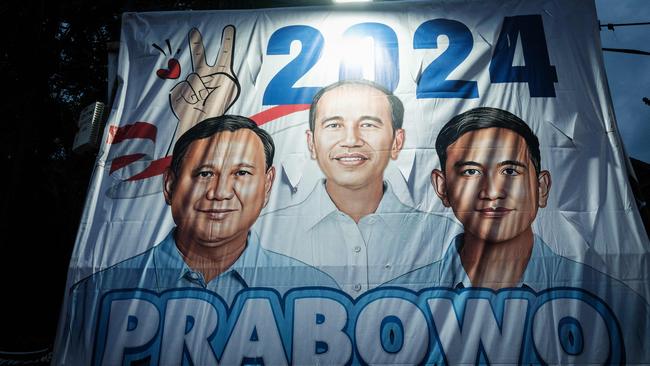
Prabowo owes much to his former political nemesis. After losing two presidential races to Jokowi he agreed to join his cabinet in 2019 as defence minister, an invitation that reinvigorated a political career on the wane after consecutive defeats.
Now, after working so hard to achieve his political ambitions only to have to cool his heels for a further eight months from his barnstorming February 14 election win to his October 20 inauguration, Prabowo is a man in a hurry.
His seam-busting 46-member cabinet – up from 34 under Jokowi – appears designed to build the biggest possible parliamentary consensus with representation from across the political spectrum, including the outgoing cabinet. Most notably, Indonesia’s well-regarded Finance Minister Sri Mulyani Indrawati will retain her role.
The former general had promised continuity during the campaign, and such decisions give some comfort to critics who feared the old, tempestuous Prabowo would re-emerge in victory.
But there is also unease about Prabowo’s age and the possibility that Gibran, a 37-year-old political neophyte who served less than three years as mayor of his hometown Solo, could end up president of the third largest democracy.
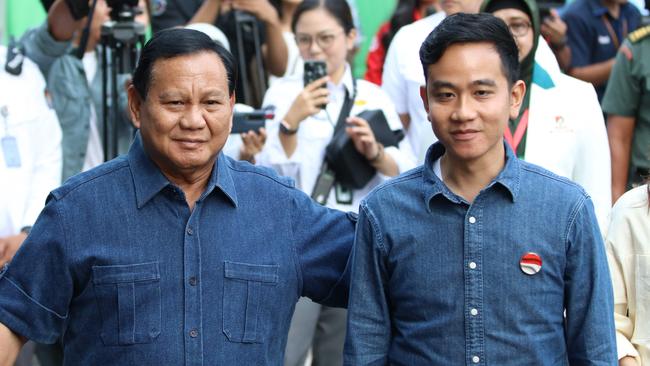
“There is a lot of disquiet around Gibran. He doesn’t have the skills or charisma of his father and there are many senior figures who see him as not competent,” Murdoch University Indonesia expert Ian Wilson says.
“If he was to assume the presidency he would be seen as a puppet for Jokowi (who tried to prolong his constitutionally mandated two terms) or others. He has served his purpose and now is seen as someone to be managed.”
How Prabowo will manage his unwieldy government is also uncertain given it will require a level of micromanaging that is not his natural predilection, adds Wilson.
He will certainly need consensus for his list of Quick Win initiatives in his first year, estimated to cost $11bn.
Top priority is delivering free meals and milk to 80 million Indonesian schoolkids – a potential bonanza for Australian dairy producers – followed by improving regional hospitals and schools, and creating more food estates to achieve self-sufficiency.
But he also has committed to continue building Jokowi’s $US32bn ($47.9bn) new capital city, Nusantara, raising questions over how he will fund it all.
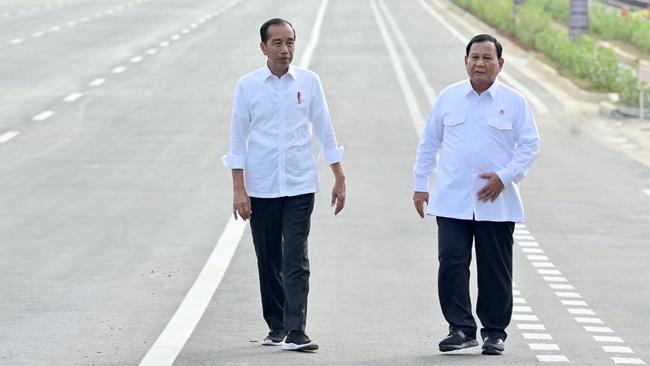
Prabowo’s brother Hashim, a wealthy businessman tipped to play a key role in his government, has suggested the money will come from lifting Indonesia’s debt-to-GDP ratio from 39 per cent to 50 per cent.
That has put debt and currency markets on edge, with economists warning of fiscal risks under an incoming administration that has also promised to boost growth from 5 per cent to 8 per cent.
In a country where political popularity closely tracks inflation trends, Prabowo’s big government could butt up against economic headwinds.
“He wants to create new ministries but he doesn’t have the money,” one commentator tells Inquirer. “Prabowo’s first and biggest challenge is going to be his budget because he wants to do a lot of big things at the same time.”
The pandemic hollowed out Indonesia’s middle class, which dropped from 57.33 million in 2019 down to 47.85 million this year, prompting a contraction in consumer spending.
Around half of Indonesia’s 280 million people are now classified as lower aspiring middle class. A further 25 million live below the poverty line, a problem Prabowo aims to solve. “We want our people to live a dignified life and poverty is not dignified,” he said after his election win.
As president-elect he has visited a dozen countries, starting with China, which set warning bells clanging until he cannily flew straight on to Tokyo.
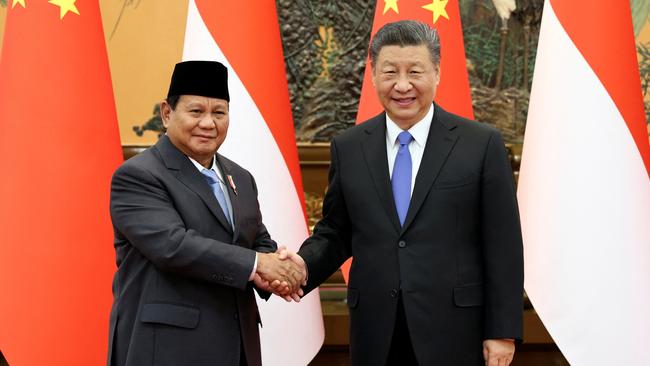
Prabowo’s July visit to Moscow, where he met President Vladimir Putin and declared Russia a “great friend”, further rattled envoys searching for signs of the next president’s foreign policy and trade approach.
He also has spoken against Israel’s war on Gaza and Lebanon, while forging stronger defence ties with its closest ally.
Trying to predict the direction of Indonesia’s next presidency has become something of a parlour game, though it is clear Prabowo will be more internationally engaged and focused on geostrategic issues than his predecessor. At a ministerial retreat at his ranch outside Jakarta this week he had US hedge fund giant Ray Dalio and political scientist John Mearsheimer, who argues NATO’s eastward creep caused the Ukraine war and America’s determination to protect its hegemony is driving the US-China rivalry, address his new ministers on geopolitics and the economy.
The big question is how Indonesia’s next president will navigate escalating great-power tensions.
The President-elect himself has given little away beyond insisting Indonesia will not be lured from its historical non-alignment into joining regional blocs or alliances, ruling out an India-style drift into a mini-lateral pact such as the Quad.
“One thousand friends too few, one enemy too many” has been his foreign policy mantra.
“We respect all great powers,” Prabowo told Time magazine in a published interview this week. “China is a great civilisation. And the United States is a great power (that) sometimes makes mistakes. They forgot who their true friends are. Some parts of the US administration, at a certain point, have an opinion about me,” he said, likely referring to his former blacklisting. “But I always put the interests of my people first.”
Yet he has repeatedly hailed US and Australian support for Indonesia in its independence struggle against its Dutch colonisers.
He, alone in the Jokowi administration, defended Australia’s right to pursue its national security interests through the AUKUS pact, and worked closely with Defence Minister Richard Marles to conclude an upgrade of the bilateral defence co-operation agreement, which he flew to Canberra to announce in August.
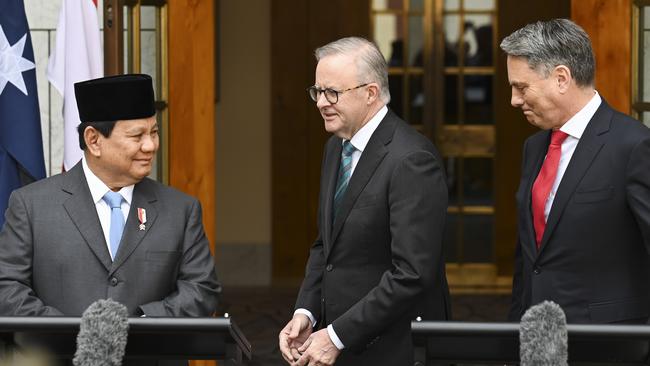
Indonesian foreign policy analyst Dewi Fortuna Anwar says Prabowo is a realist who sees the “value of AUKUS as a deterrence against potential threats”, and in expanding military exercises with the US to include Indo-Pacific partners.
Anwar predicts he will continue to balance economic interests with China and security co-operation with the US, and work to maintain good relations no matter who occupies the White House.
Jakarta’s relationship with Australia – which “leans heavily on political and security issues” – is also unlikely to change under Prabowo, though he will want more trade and investment, she adds.
Others warn Canberra will need to step carefully on sovereignty issues. Australia’s 1999 peacekeeping intervention in East Timor is a sore point for the former Kopassus commander whose unit was accused of massacring 200 people at the height of Indonesia’s occupation.
Jakarta views the 2006 Lombok Treaty as Australia’s undertaking it will never again meddle in Indonesian internal affairs. Anthony Albanese made prominent mention of that treaty during Prabowo’s visit in August.
But those same sensitivities suggest Prabowo will also be less tolerant of China’s incursions into Indonesian maritime waters, something Jokowi played down to court greater Chinese investment.
Long road to victory
To understand the motivations of one of Indonesia’s most divisive politicians, there are clues to be found in his Javanese family’s history. The eminent Djojohadikusumo clan has made deep contributions to the modern nation state of Indonesia.
Prabowo lost two uncles in the country’s war of independence against the Dutch while his grandfather founded Indonesia’s central bank. His father Sumitro was a respected economist who served under Indonesia’s first president, Sukarno.
Yet those familiar with the family say they see themselves as outsiders to a venal Jakarta elite, lettered aristocrats who bled for their country only to suffer the ignominy of ostracism.
Sumitro was forced into exile for joining a failed rebellion and Prabowo spent his childhood in Singapore, Malaysia, Hong Kong, Switzerland and England where – he told a gathering of diplomats last November – he learned to admire the West’s achievements even as he felt the sting of racism.
“As a young man I saw signs outside Jakarta swimming pools: no dogs or natives,” he recalled. “I went to school in Hong Kong and Singapore when they were still British colonies. There were certain parts that I as a brown man could not go in.”
In exile he learned to speak German, English and French – his own son is a Paris-based fashion designer – and on the family’s return had to relearn his native language.
He chose the military over academe and rose up the ranks, only to be forced back into exile, to Jordan, after Suharto’s ouster.
The road to Prabowo’s political destiny, as he sees it, has been long and rocky. Having finally made it, he is determined to leave his mark.
ADDITIONAL REPORTING: Dian Septiari


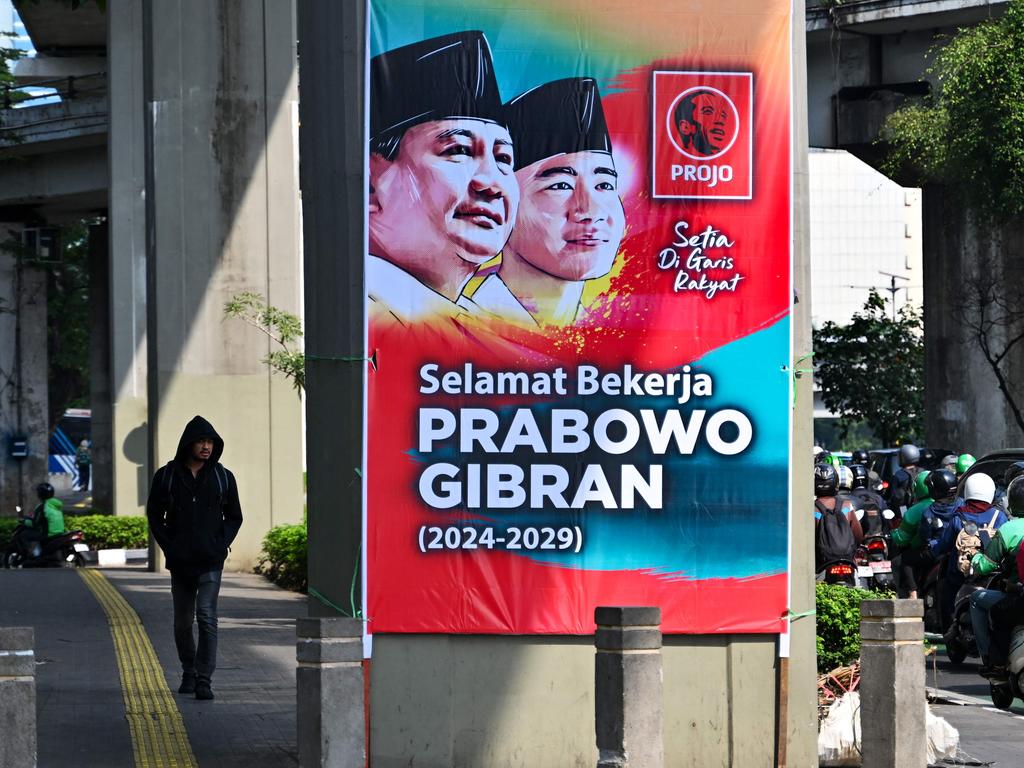
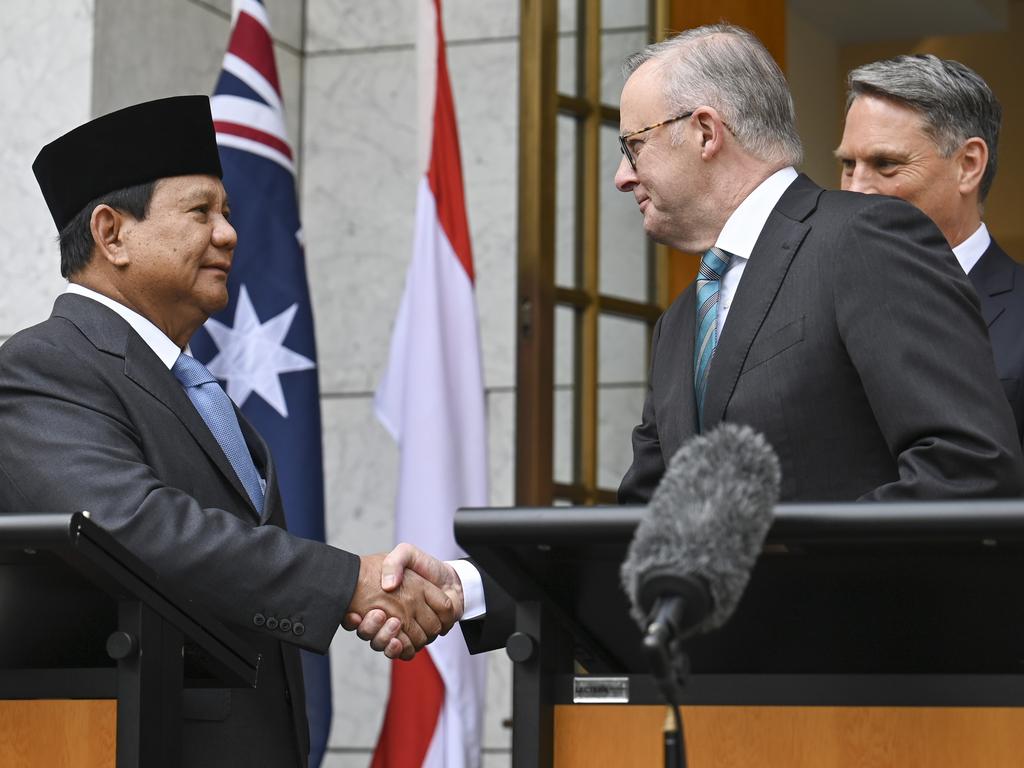
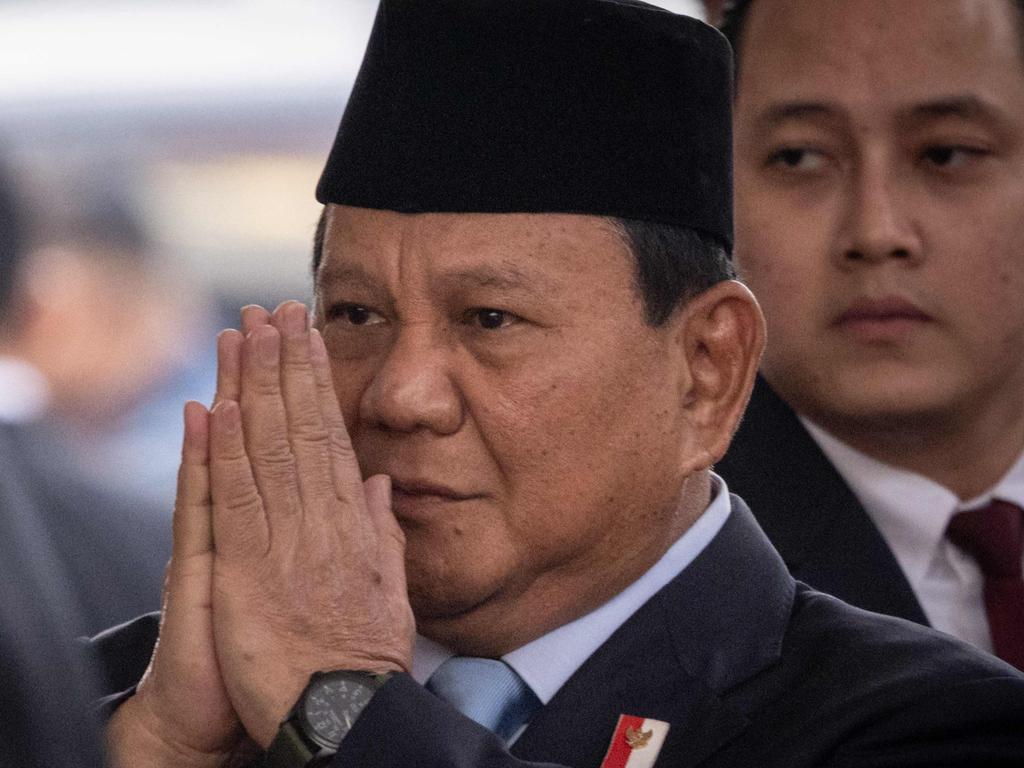
To join the conversation, please log in. Don't have an account? Register
Join the conversation, you are commenting as Logout